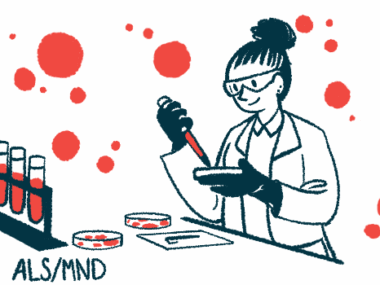ALS Canada awards $200K to speed global disease research
Scientists in Spain, the Netherlands to study epidemiology, EEG in ALS
Written by |

The ALS Society of Canada (ALS Canada) has awarded two expedited grants totaling $200,000 to international researchers seeking to advance understanding of amyotrophic lateral sclerosis (ALS).
Provided through the 2023 ALS Canada Acceleration Grant Program, a $100,000 grant will support Mónica Povedano, MD, at the Hospital de Bellvitge-IDIBELL in Barcelona, Spain, in conducting a population-based study of ALS in Colombia and Ethiopia.
Stefan Dukic, PhD, a postdoctoral researcher at the University Medical Centre Utrecht, in the Netherlands, will also receive $100,000 to develop a new method to subgroup people with ALS using an electroencephalogram (EEG), which measures the electrical activity in the brain.
“We are incredibly proud to be bringing forward an innovative opportunity to fund new projects at an expedited speed with the ALS Canada Acceleration Grant Program,” Tammy Moore, CEO of ALS Canada, said in a press release from the non-profit.
ALS Canada seeks to fund research that will affect future discoveries
“ALS is a devastating disease; by bringing together global leaders in ALS to identify and support projects from around the world, we look to fund research that will change the outcome of an ALS diagnosis and have an impact on future ALS discoveries,” Moore said.
In ALS, the nerve cells that control voluntary movements, called motor neurons, progressively degenerate and die, preventing the brain from properly controlling muscles.
People with ALS experience symptoms such as progressive muscle weakness, typically starting in the hands or feet, or the muscles around the throat and mouth, which leads to problems swallowing and speaking. Over time, muscle weakness can evolve into paralysis, with little to no ability to move or breathe. Eventual respiratory failure is the most common cause of death in ALS.
Program created to expedite funding process for promising research projects
The ALS Canada Acceleration Grant Program was created to expedite the funding process for promising research that relies on a unique form of global peer review. Specialists in the field take proactive measures to identify the most suitable projects to support rather than assessing applications after they are submitted. This could reduce the time to secure funding from years to a few months.
Among the selected projects, Povedano will lead a collaborative effort with colleagues in Colombia and Ethiopia to conduct an epidemiological study — the distribution of ALS in populations and the factors determining that distribution — in these countries. The project will be the first comparative study of ALS across different ethnic backgrounds while incorporating data from European individuals.
In addition, Povedano will help create the infrastructure to conduct clinical trials, which may provide access to investigational therapies in these countries. The research will also advance opportunities to discover new treatments that may help ALS patients globally if successful.
Dukic and colleagues have shown that EEG, which uses electrodes placed on the scalp, can detect abnormal patterns of brain activity related to motor and cognitive function in people with ALS. The technology may predict disease progression.
Grant will help speed research, recruit more participants in EEG study
The grant will help speed up this work and recruit more participants. The team will also combine EEG with MRI to investigate individuals who carry mutations in the C9ORF72 gene, the most common genetic cause of ALS, and have yet to experience symptoms. This research may help the development of early or preventive treatments.
Funding for Dukic’s grant was made possible through a partnership with The Stevie Fever for ALS Foundation, which contributed $100,000 to ALS Canada.
“Researchers around the globe are working tirelessly to uncover new discoveries that will advance our understanding of ALS and develop effective treatments for the disease,” said David Taylor, PhD, vice president of research and strategic partnerships at ALS Canada.
“To have an impact on people currently living with the disease, we must move faster to fund research and look at promising, innovative ideas beyond our borders to fuel discoveries that will lead to a world free of ALS,” Taylor added.







